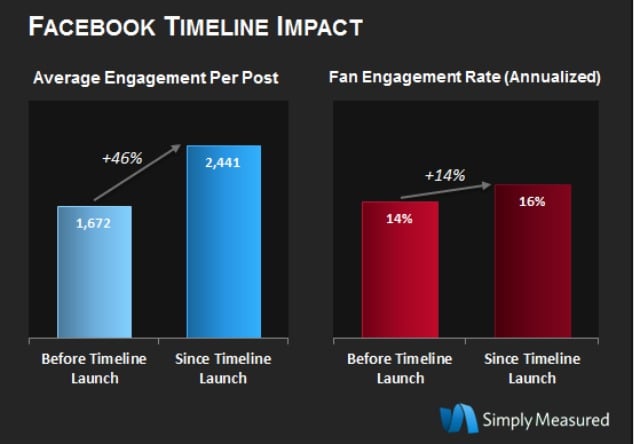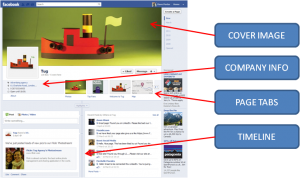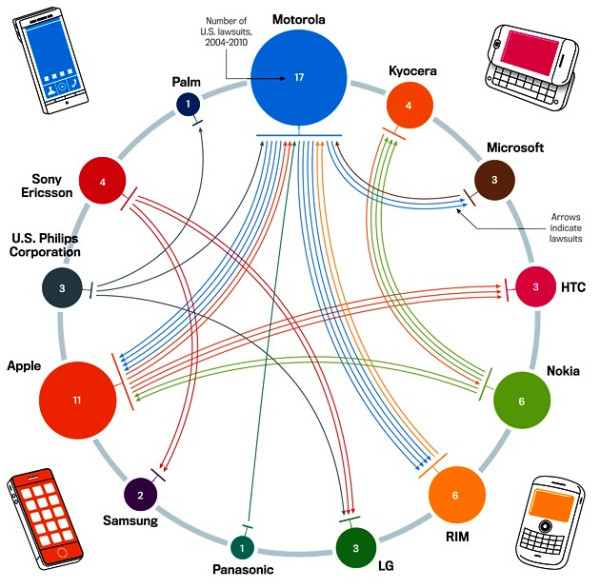 In 2010, Foursquare fans declared April 16 4sqDay (4/4^2 – nerds after our own heart!). Two years and two billion check-ins later, Foursquare is still going strong with over 20 million fans and over three million check-ins every day.
In 2010, Foursquare fans declared April 16 4sqDay (4/4^2 – nerds after our own heart!). Two years and two billion check-ins later, Foursquare is still going strong with over 20 million fans and over three million check-ins every day.
Check-in today to claim your own unique 4sqDay badge from the social network!
To talk about social media drop me a line at ben.romberg@tugsearch.co.uk
Follow us on Twitter @tugagency
Well, both fan pages have a similar count of people actively talking about them (just over 100,000 each in fact). Surely this figure shows a better picture of how one brand fairs from another, rather than the amount of ‘Likes’ each one has? One thing is for sure; since the terms ‘Fan-Gating’, often referred to as ‘Like-Gating’ or ‘Like-Blocking’, have been floating around the world of Social Media Marketing, this certainly does seem to be the case. How many of these fans have been bullied into being a fan of the page in order to view content that their mate has told them to check out? In other words, how many of these ‘Likes’ are actual brand advocates?
Fan-Gating – the practise of displaying locked content to Facebook users, who become a fan of a brand page by hitting ‘Like’, is now on its way out. Following the rollout of the new Facebook Timeline feature on all pages, personal and brand’s alike, the process of coercing visitors to Like your page before they can access the content you want them to see, is in fact no longer going to be possible.
With Timeline, default Landing Pages are a thing of the past which means that, if you once had a custom landing page tab installed on your page, your visitors will no longer land on it automatically. Instead, the first thing a visitor will see will be your Timeline – a long list of historical posts and milestones, chronologically listed, since the date your page was born. See our Timeline below as an example of what visitors first see.
So what does this mean for brands? Well we actually think it’s a great move. Yes, it’s a game-changer, and yes it completely changes the way that brands can exponentially grow their fan count, however; we believe it paves the way for brands to create better content and properties – better apps that engage genuine fans and content that will essentially lead to higher post-engagement rates and aid long-term advocacy.
It doesn’t spell the end for apps and landing tabs – far from it. Apps should continue to be used for what they have always intended; to generate genuine interest in your brand and engage with a real customer base, rather than generating a collection of Facebook users who are less likely to ‘follow’ your brand and therefore miss out on all your future posts in their News Feeds.
There are an array of biddable media sources that can be used to drive quality, pre-qualified traffic to your Apps and Tabs, which in itself will increase the likelihood of your fans continuing to follow your activity.
For more information on how Tug can help to drive quality traffic to your newly optimised Facebook Timeline page, and help you to deliver creative, engaging apps and tabs that will give your social presence a real purpose, just drop us a line – you don’t even have to ‘Like’ us first!

UK internet advertising spend is set to hit £5bn in 2012 according to the Internet Advertising Bureau, with Facebook on track for an estimated 60% revenue surge to £288m. Companies spent £4.78bn on all forms of internet advertising in the UK in 2011, with 14.4% year-on-year growth the biggest surge since 2007.
The UK needs to see growth of just over 4% in 2012 – which is definitely set to hit it’s target – for the market to be worth £5bn annually. A big part of the growth in2011 was due to massive boom in advertising on mobile devices and tablets, rising by157% (£203m) last year.
Search advertising (dominated by Google) accounts for 58% of total UK digital ad spend, grew 17.5% in 2011 to £2.77bn.
Display advertising grew by 13.4% to £1.13bn in 2011.
One of the biggest beneficiaries of the surge in display advertising is Facebook, which figures from Enders Analysis estimates doubled revenues in 2011 to £180m.
A big part of this growth has come from the British public’s love of web search and the cost-effective nature of search advertising.
 The BBC’s social media strategy for English Regions has been leaked online.
The BBC’s social media strategy for English Regions has been leaked online.
This document gives a sneak peak as to how Britain’s biggest media organisation manages its social media channels, which provides a useful guide for both marketers and brands.
Aside from the usual house-keeping tips, there are some insightful nuggets that we have highlighted below following a quick read:
- Admin access for BBC Facebook and Twitter accounts should be held by at least two members of the team so there is no risk of a single person leaving the BBC with access rights which cannot then be revoked.
- All Facebook updates must be written “natively” for Facebook (i.e. not pulled in automatically from RSS or Twitter).
- It is a good idea to set “Profanity blocklist” to “High” on all Facebook pages (this setting can be found under Edit Page / Manage Permissions)
- All updates must be produced by hand for Twitter (i.e. no cross-posting from Facebook) apart from accounts tweeting online News stories automatically, which should be clearly labelled as such.
- If you wouldn’t say it in a two-way, don’t say it on Facebook or Twitter
Clearly there are other social media services on the market, and there will be many more in the future. Some have been around for a while but are still niche (e.g. Audioboo); others are relatively new and unproven (e.g. Google+); others are not traditional social networks but rather new social storytelling tools (e.g. Storify).Any use of these services around our output must:
- be considered a trial
- have a plan ahead of time to gauge their impact after a few weeks
- This policy should not discourage innovation – Facebook and Twitter were once niche and untested too – but aims to ensure the bulk of our available effort goes on services whose bene?ts are proven
To talk about social media drop me a line at ben.romberg@tugsearch.co.uk
Follow us on Twitter @tugagency
 This Friday Facebook Pages switch to Timeline and if you are wondering if Facebook Timeline will be worth the effort, here’s some encouraging news: A researcher reports that brands are getting as much as 46% more engagement after activating Timeline.
This Friday Facebook Pages switch to Timeline and if you are wondering if Facebook Timeline will be worth the effort, here’s some encouraging news: A researcher reports that brands are getting as much as 46% more engagement after activating Timeline.
Simply Measured, drew its results from a small sample of 15 Facebook brand pages. Doing so may have created a false sense of lift, especially since the greatest beneficiaries, Livestrong and Toyota, who saw their engagement rates increase from somewhere between 161% and 156%, respectively.
It’s not all good news though, data gathered by Simply Measured reveals that responses to status updates actually fell with Timeline, but engagement with videos and photos were up a composite 65%. Schoenfeld’s theory is that the larger images on Timeline are leading to more engagement with visual material.
This makes it worth post more videos and photos. “We’re wondering if this is because of Pinterest,” he says.
To talk about social media drop me a line at ben.romberg@tugsearch.co.uk
Follow us on Twitter @tugagency

The last cover of Wired Magazine was dedicated to David Karp, the creator of Tumblr, a social blogging platform where you can find information on fashion, art, design and beauty.
At Tug we love Tumblr because it allows 2 options:
– Publish written and multimedia content
– Reblog (defined as the republication of a piece of content from another Tumblr blog – you need to click the related button and you will publish the same post in your blog, links included)
It is easy to see how this platform has transformed its users into artists/curators of online boards, that most of the time appear in a stylish layout.
This community has a strong inclination to share content, so you would benefit if the community reuses the same content in different domains, as the links are also transferred during the reblogging.
Recently we have published a blog post on a big industry influencer that has enabled reblogging buttons. This has lead to massive results, namely 14 reblogs from other Tumblr adepts along with 23 likes. Mind you, she does have around 3,000 followers on Twitter!
From the link building viewpoint you can get your links multiplied due to reposts and this will strongly benefit your positions.
Iran is a country that already considers every political development to be a conspiracy dreamt up by the CIA or MI6, this approach will be added to a long list of subversive measures that have tainted Iran’s history since the 1953 Iranian coup d’etat (known in Iran as the 28 Mordad coup) that the British government was heavily involved in.
More recently Britain has been at loggerheads with Iran over its nuclear energy programme, which Tehran says is peaceful but which Britain, Israel and the US suspect is being used to develop a nuclear bomb. Bilateral relations between Britain and Iran have always been difficult, in 2007 Iran kidnapped several British sailors and diplomatic ties hit a new low last November when Britain closed its embassy in Tehran after protesters stormed the building and Iranian diplomats were expelled from London.
The Foreign Office however, says the website as well as new Facebook, Twitter and Google+ account will provide information about Britain and its policies towards Iran as well as allowing Iranians to have discussions and ask questions that ordinarily might be censored.
“We are relaunching now our Iran website and social media presence for you and for you to use it,” Foreign Secretary William Hague said in a video message on the “UK for Iranians” website (ukforiranians.fco.gov.uk/en in English and ukforiranians.fco.gov.uk/fa in Farsi).
To talk to Tug about social media drop me a line at ben.romberg@tugsearch.co.uk
Follow us on Twitter @tugagency
The infographic below details who is suing who in the mobile technology space (Motorola with 17 US lawsuits between 2004 – 2010) and HTC are under fire from technology giant Apple with three lawsuits. A quiet battle rages on in the courtrooms where it looks as though the only real winners are set to be the lawfirms.






